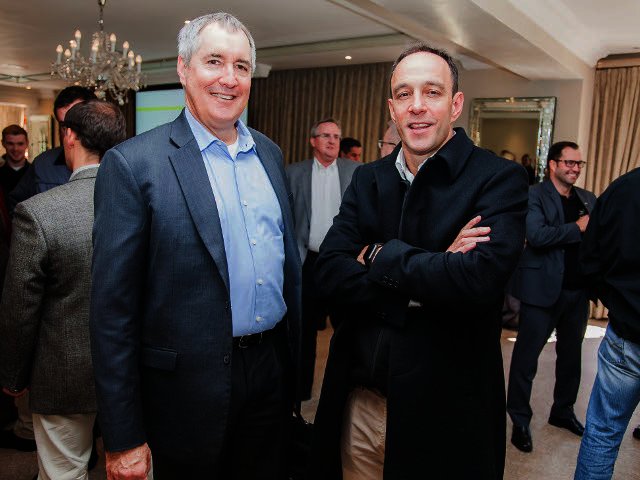From toddlers completely au fait with mobile devices, through to 24/7 365 online shopping or access to real-time and dynamic financial services, the enormous power and influence of technology is an intrinsic part of society.
“Yet, this is just the tip of the iceberg,” says Roy Alves, Business Development Manager, MEA, Axis Communications, with more change expected in the next one or two decades than the entire last century. “And, it is about so much more than convenience or access to services,” stresses Alves. “It’s about enabling both a smarter – and safer world, with analytics (the ability to monitor and analyse large of amounts of data) key, and cameras fast becoming just another device on the network supplying valuable data.”
Whilst this might not appear a new concept, advancements across other areas is enabling analytics to gain prominence. “The last few years have seen enormous strides in network video, particularly with regards to image quality and performance. Moving forward, this is bringing about an entirely new era in network video surveillance.”
Simon Carpenter, Chief Technology Officer, SAP Africa, adds that as important is the ability to respond to what the data is telling you – automatically and effectively. “It’s about moving from insights gained through to action and outcome,” says Carpenter, with the right platform managing this key to maximising your investment. “Big data is a reality,” continues Carpenter, “with countless devices all producing massive amounts of information. The real value lies in being able to make sense of it, responding appropriately.”
“We no longer talk about security cameras. Today, and tomorrow’s focus lies in the provision of solutions,” says Alves. Network video surveillance, coupled with ever evolving analytics, holds massive benefit across both business and society. From analytic apps, easily downloaded and installed, network cameras will continue to move beyond the realm of traditional surveillance. It will bring, for example, the ability to not only count the number of women and men entering a store, but also provide information on chosen route together with other demographics. “Using this data for better insights will continue to transform customer experiences and engagement,” says Carpenter, “enabling businesses everywhere to truly tailor its offerings.”
“This ability to cater for unique requirements is set to continue, quickly becoming the norm, and is as applicable in the manufacture of actual network video hardware,” adds Alves. From harbour safety requiring long range thermal technology, laser and radar for quick identification of threats through to prisons with its own unique specifications, cameras will become specialised for the industry in question.
Undoubtedly though, one of the greatest benefits to mankind will lie in the increased security and safety of all our people. With more and more people flocking to urban areas, the need for smart and safe cities is increasing. “Cameras, with great intelligence, will aid exactly this,” continues Alves, with the ability to integrate into other systems, such as voice, bringing with it additional benefits.
Alves goes on to cite the example of a woman screaming and the audio, picked up by an embedded microphone, automatically directing one of the zoom cameras to take a closer look. Or a break in an electric fence, once again triggering a camera to automatically zoom in on the desired area. “The ability to respond appropriately by providing, for example, emergency personnel with on the ground information as to what to expect upon arrival, known criminals in the area and even the fastest route to get there, is where the true value lies,” adds Carpenter.
Alves also predicts an increase in the use of social media in combatting crime. Currently in Dubai, activity in most public areas is recorded in both high definition and full frame rate. Building on this, cameras that are social media ‘ready’ could serve as a huge crime deterrent. Latest software also enables one to create an ‘avatar’ type character. “In the event of a crime being committed, one can create a character replicating the suspected perpetrator’s clothing and general appearance. One is then able to place this ‘into’ the network camera, significantly speeding up the search and locate process.”
But it is not just about safe, with smart being as important. “We need to ensure optimal living and working conditions within our cities,” says Carpenter. By looking beyond ‘surveillance’, technology and in particular analytics is able to provide profound insights into how a city operates. “This allows us to take remedial action,” continues Carpenter, from the better management and planning of traffic flows and spatial development through to green areas and early flood warnings.
When asked about the next 20 years, both Alves and Carpenter talk to the increase in automation. With the amount of data available, and steadily increasing, we are already at a point where there is just too much happening for a group of people to effectively analyse. The world will begin to rely more and more on automated analytics constantly operating in the background, looking for events and happenings whilst triggering relevant responses from the automatic opening or closing of floodgates through to the involvement of a social worker after a street fight.
Everything worth connecting to the internet will be connected. The world as we know it will be a massive digital microscope, allowing us to examine it in an unprecedented fashion. It will be up to us to take this information, deciding on how best to use it for the sake of all.





